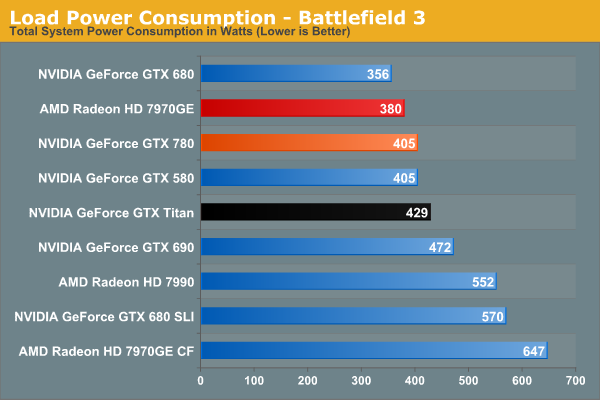No. When they advertise the bandwidth in pure throughput speed (Gb/s), that's the actual bandwidth you get. I don't doubt that the end result will be that the Hawaii will OC too and because of the 512bit bus then have slightly higher actual bandwidth.
But AMD put the 300GB/s number out there and that is simply unimpressive, possibly it will allow them to use cheap memory since the 512bit bus takes care of still getting them to where a 7970 will overclock with ease. But advertising this number almost two years after 79xx release means that the actual memory bandwidth has practically not improved at all.
Tahiti as Radeon HD 7970 has a memory bandwidth of 264 GB/s.
As for Hawaii, you're still not getting the point that a quad channel interface is a design decision taken to be significantly more power-efficient, do you?
At the same time, you're badmouthing a GPU not even presented in full detail for technical details which may not even affect performance in the way you display:
* Not even Tahiti showed any signs of being bandwidth-starved
* You imply that the design decision more channels with less power-consuming, lower-clocked GDDR already means "cheap modules", when you have no details whatsoever about the very module specifications themselves
* You imply that a small increase of bandwidth is a major issue, when as a fact none of the current-gen and last-gen high-end cards ever had the issue of being even remotely bandwidth-starved
What's really impressive, if correct, is that AMD engineers managed to compact a 4 channel memory interface to a smaller die area than their previous 3 channel interface, whilst working on the same fab process.
So stop implying technical issues you have no idea of and very little information on, and stop badmouthing a product many talented engineers spent thousands of hours of highly-creative and productive hard work on! Show some more respect for that sort of engineering work even badmouthers as yourself will be allowed to buy!





